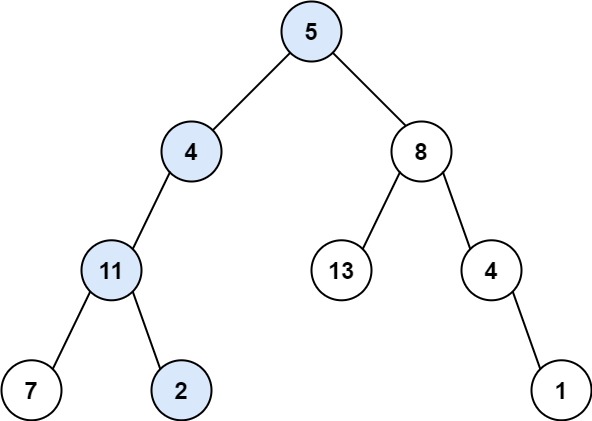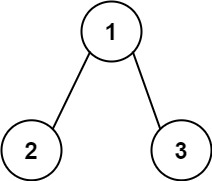Path Sum
Problem Statement - link #
Given the root of a binary tree and an integer targetSum, return true if the tree has a root-to-leaf path such that adding up all the values along the path equals targetSum.
A leaf is a node with no children.
Examples #
Example 1:

Input: root = [5,4,8,11,null,13,4,7,2,null,null,null,1], targetSum = 22
Output: true
Example 2:

Input: root = [1,2,3], targetSum = 5
Output: false
Example 3:
Input: root = [1,2], targetSum = 0
Output: false
Constraints #
- The number of nodes in the tree is in the range
[0, 5000]. -1000 <= Node.val <= 1000-1000 <= targetSum <= 1000
Solutions #
/**
* Definition for a binary tree node.
* struct TreeNode {
* int val;
* TreeNode *left;
* TreeNode *right;
* TreeNode() : val(0), left(nullptr), right(nullptr) {}
* TreeNode(int x) : val(x), left(nullptr), right(nullptr) {}
* TreeNode(int x, TreeNode *left, TreeNode *right) : val(x), left(left), right(right) {}
* };
*/
class Solution {
public:
bool hasPathSum(TreeNode* root, int targetSum) {
if(!root) return false;
targetSum -= root->val;
if(targetSum == 0 and !root->left and !root->right) return true;
return hasPathSum(root->left,targetSum) or hasPathSum(root->right, targetSum);
}
};